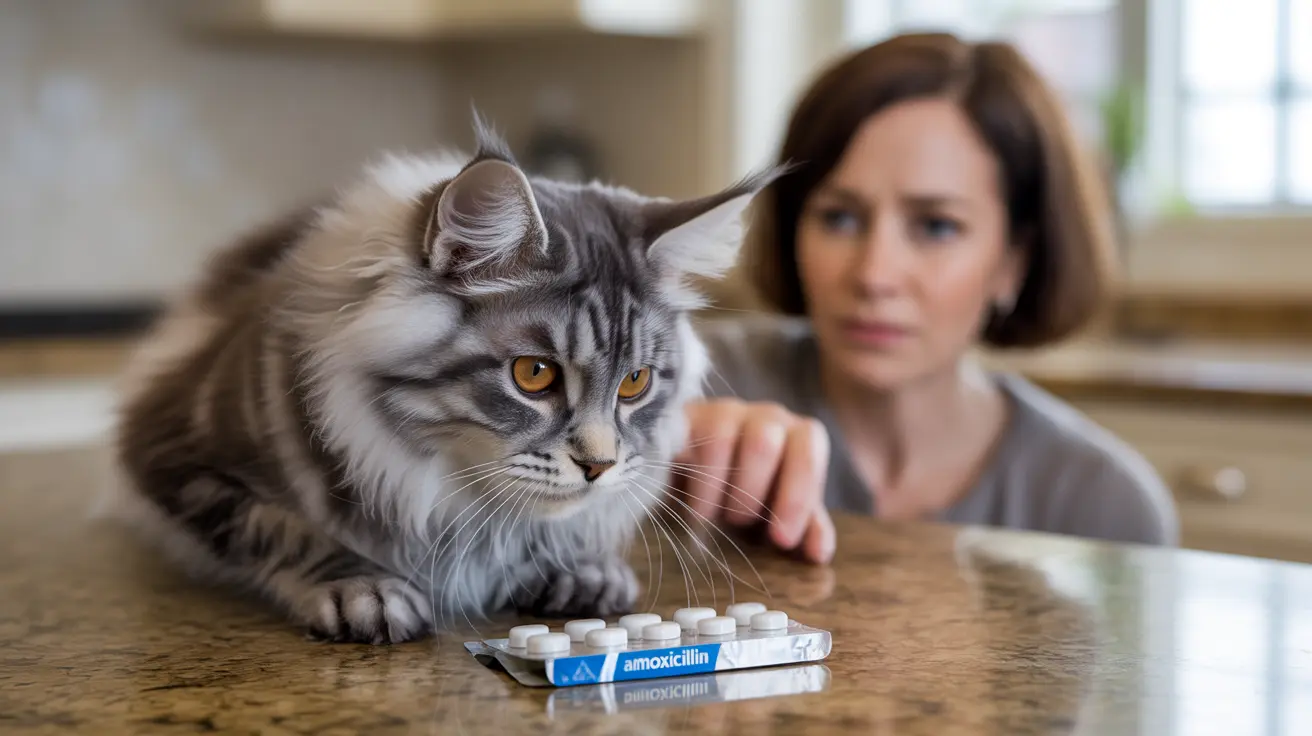Understanding Why Human Antibiotics Are Different for Cats
Cats have unique metabolic systems that process medications differently than humans. Their smaller size, distinct organ functions, and species-specific sensitivities mean that human antibiotic doses can be dangerous or even fatal for cats.
What's safe for humans can be toxic for cats. For instance, a single human-sized antibiotic tablet could contain several times the appropriate dose for an average house cat, potentially causing severe complications.
Safe Antibiotics for Cats: What Veterinarians Actually Prescribe
Some human antibiotics can be safely used in cats, but only under strict veterinary supervision and with precise dosing. Common examples include:
- Amoxicillin (properly dosed for cats)
- Cephalexin
- Clindamycin
- Trimethoprim-sulfa
These medications require specific veterinary formulations and careful weight-based dosing calculations to ensure safety and effectiveness.
Dangers of Giving Cats Human Antibiotics
Administering human antibiotics to cats without veterinary guidance can lead to several serious problems:
- Severe allergic reactions
- Organ damage
- Gastrointestinal issues
- Antibiotic resistance
- Potentially fatal toxic reactions
Even antibiotics that are theoretically safe for cats can cause harm if given in incorrect doses or for the wrong conditions.
When to Seek Veterinary Care
Instead of reaching for human antibiotics, contact your veterinarian if your cat shows signs of infection such as:
- Lethargy
- Loss of appetite
- Fever
- Visible wounds or abscesses
- Respiratory issues
- Urinary problems
A proper diagnosis ensures your cat receives the right treatment for their specific condition.
Frequently Asked Questions
Can I safely give my cat human antibiotics like amoxicillin without a vet's prescription?
No, never give your cat human antibiotics without a veterinary prescription. Even medications that are safe for cats in the right doses can be dangerous when not properly prescribed and monitored by a veterinarian.
What are the risks of giving leftover human antibiotics to my cat?
Risks include overdose, toxic reactions, organ damage, severe allergic reactions, and the development of antibiotic-resistant infections. Additionally, improper antibiotic use may mask symptoms while allowing the underlying condition to worsen.
Which human antibiotics are commonly prescribed by vets for cats, and how are dosages determined?
Veterinarians may prescribe certain antibiotics also used in humans, such as amoxicillin or cephalexin, but in specific veterinary formulations. Dosages are carefully calculated based on the cat's weight, age, overall health, and the specific infection being treated.
What side effects should I watch for if my cat is on antibiotics, and when should I seek emergency care?
Common side effects include mild digestive upset, but seek immediate emergency care if you notice difficulty breathing, severe vomiting or diarrhea, collapse, or signs of an allergic reaction such as facial swelling or hives.
How does improper use of antibiotics in cats contribute to antibiotic resistance?
Incorrect antibiotic use, including inappropriate drug choice, dosing, or treatment duration, can allow bacteria to develop resistance. This makes future infections harder to treat and contributes to the broader public health crisis of antibiotic resistance.
Conclusion
While some human antibiotics can be safely used in cats under veterinary supervision, never attempt to treat your cat with human medications on your own. Always consult a veterinarian for proper diagnosis and treatment to ensure your cat's safety and recovery.
Remember, the cost of a veterinary visit is far less than the potential price of treating complications from improper antibiotic use. When it comes to your cat's health, professional guidance is always the safest choice.






